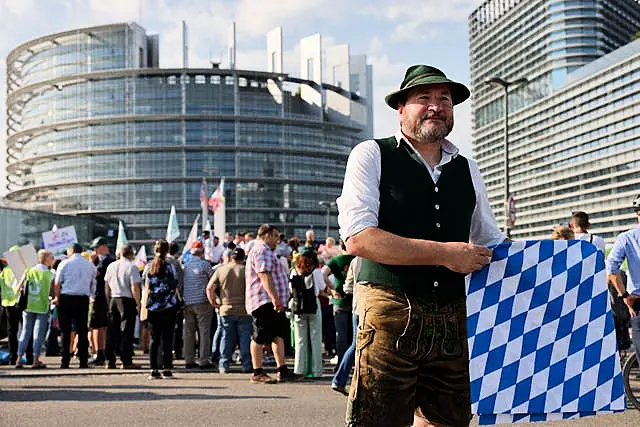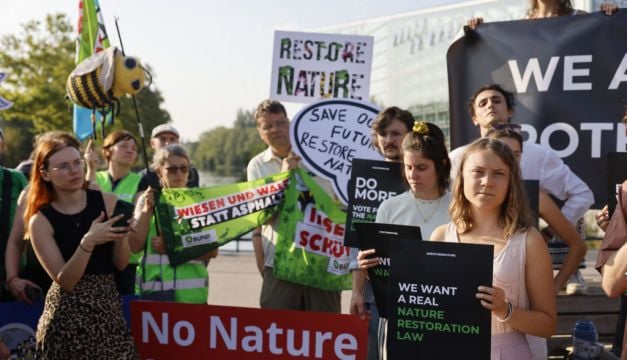The European Parliament approved a major plan to protect nature and fight climate change in a cliffhanger vote on Wednesday.
In a test of the EU’s global climate credentials, MEPs supported the general outlines of the European Commission proposals in a razor-thin 324-312 vote with 12 abstentions.
All five Fine Gael MEPs rebelled against an attempt by their centre-right political group the European People’s Party to kill the Nature Restoration Law.
It means that no Irish MEP backed the rejection of the bill, which has become the focus of a political storm as the European Parliament’s right-wing groups seized on it as an attack on farmers that threatened food security, even as green groups and scientists insisted it was the opposite.
The Bill is a key part of the EU’s European Green Deal which seeks to establish the world’s most ambitious climate and biodiversity targets and make the bloc the global point of reference on all climate issues.

The plans proposed by the European Commission, the EU’s executive branch, set binding restoration targets for specific habitats and species, with the aim by 2030 to cover at least 20 per cent of the region’s land and sea areas.
After weeks of intense haggling and despite the staunch opposition from the legislature’s biggest group, the European People’s Party, the plan survived the highly anticipated vote at the European Parliament in Strasbourg, France.
Immediately, politicians started voting on more than 100 amendments to make the plan more flexible.
Approved amendments will be taken into negotiations with the member states and it will be months before a final law can be approved.

The European Commission wants the nature restoration law to be a key part of the system as it is necessary for the overall deal to have the maximum impact.
Others say that if the EU fails on the nature restoration law, it would indicate an overall fatigue on climate issues.
The Bill long looked like a shoo-in as it gathered widespread support in member nations and was staunchly defended by the European Commission and its president, Ursula von der Leyen.
But Ms von der Leyen’s own political group, the Christian Democrat EPP, turned sour on it and now vehemently opposes it, claiming it will affect food security and undermine the income of farmers and disgruntle a European population focused more on jobs and their wallets.
Like some other countries and leaders, they want to hit pause on such far-reaching climate legislation.







